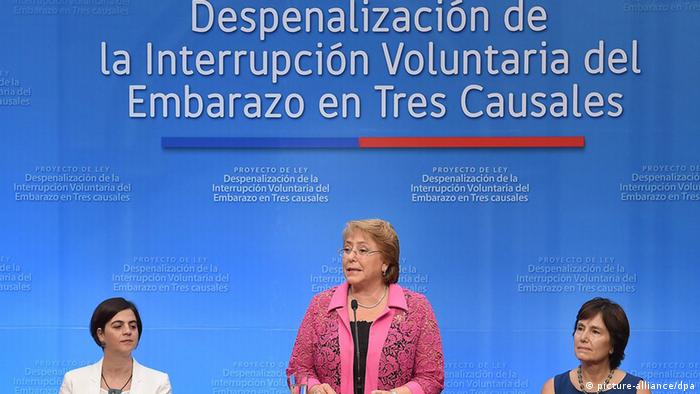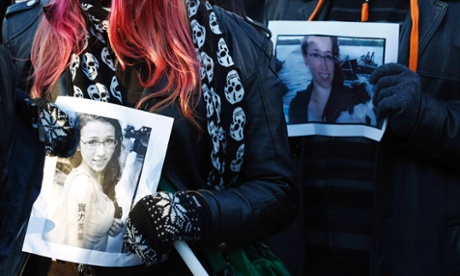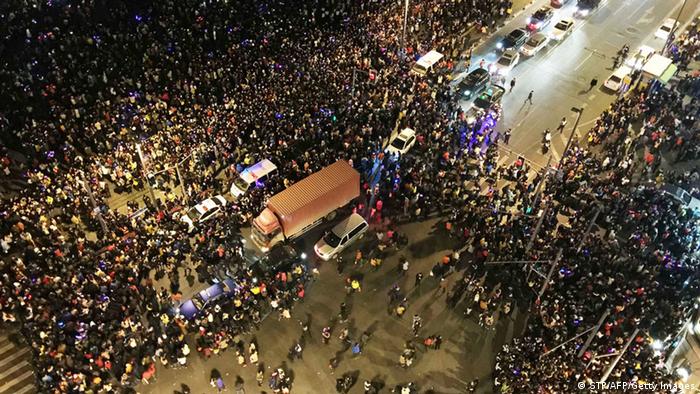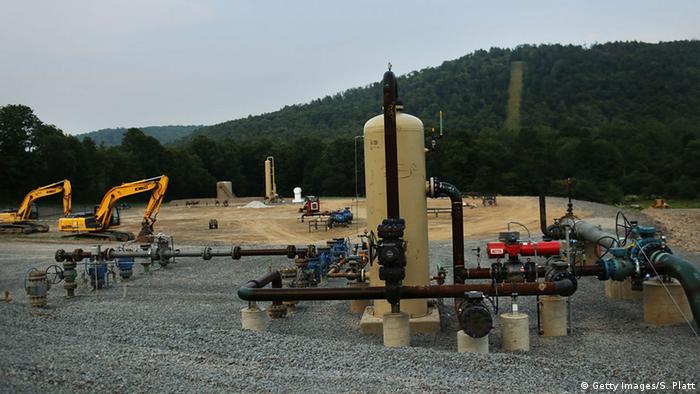Welcome
....to JusticeGhana Group

JusticeGhana is a Non-Governmental [and-not-for- profit] Organization (NGO) with a strong belief in Justice, Security and Progress....” More Details
Chile's president Bachelet pushes to decriminalize abortion
- Details
- Category: Law & Justice
- Created on Sunday, 01 February 2015 00:00
- Hits: 5888
 Chile's president Bachelet pushes to decriminalize abortion
Chile's president Bachelet pushes to decriminalize abortion
President Michelle Bachelet has signed a bill intended to ease the strict ban on abortion in Chile, despite a powerful anti-abortion lobby. Abortion of any type has been illegal since the era of Pinochet dictatorship.
The new legislation, which Bachelet sent to the Chilean Congress on Saturday, would allow a termination of pregnancy in three types of cases: deadly birth defects, danger to the mother's life, or pregnancy which is a product of rape.
President Bachelet, who is a qualified pediatrician, said it was time to change the strict anti-abortion laws:
"Facts have shown that the absolute prohibition and criminalization of abortion has not stopped the practice," the president said, adding that illegal terminations of pregnancy in Chile "often take place in conditions that pose great risks to the life and health of women."
There is no precise data on how many illegal abortions are carried out in Chile, but the estimates vary from 15,000 to 160,000 per year. In each of those instances, women having an abortion face the risk of spending five years in prison.
A number of opposition MPs and even some members of the president's New Majority bloc already announced they would fight against the decriminalization.
"It astounds me that today we're putting the right to liberty before the right to life," said Senator Jacqueline van Rysselberghe of the right-wing UDI party.
The absolute ban of abortion is enforced according to a law adopted in the closing days of Augusto Pinochet's dictatorship in 1989, and several attempts to change the regulations have already been blocked in Congress.
'A step in the right direction'
Although the anti-abortion lobby and the Catholic church are still powerful factors in the socially conservative South American country, current polls show that some 70 percent of Chileans support Bachelet's bill.
"This is a step in the right direction. But the law also has to assure that women, regardless of their economic situation, can access abortion services," said Ana Piquer, head of Amnesty International in Chile, referring to fears that health insurance policies may not cover all costs.
The attitudes toward termination of pregnancy have been changing during the last several years, partly because of a 2013 case of an 11-year old-girl who became pregnant after being raped by her stepfather.
Bachelet pushing for reforms
President Bachelet, who already served as Chile's first female president from 2006 to 2010, has promised to change some of the longest-lasting remnants from the Pinochet-era, and bridge Chile's wide income gap.
Among other initiatives, she has advocated tax reform, modernization of the education system, and a law allowing civil unions for same-sex and unmarried heterosexual couples.
dj/sb (AP, Reuters, AFP)
Source: Deutsche Welle
Why don’t sentences for accused sex offenders teach them to treat women like people?
- Details
- Category: Law & Justice
- Created on Monday, 19 January 2015 00:00
- Hits: 5763
 Why don’t sentences for accused sex offenders teach them to treat women like people?
Why don’t sentences for accused sex offenders teach them to treat women like people?
Our current legal system discourages people from taking full responsibility for their actions and their consequences
Victoria Law
In November 2011, a group of young men allegedly raped a very drunk fifteen-year-old, snapped a photo, and circulated it, kicking off bullying that preceeded the girl’s suicide. On Thursday, one of them was sentenced to twelve months of probation and a mental health assessment. Whether or not this was an appropriate sentence – he was not on trial for rape, but for distributing a nude photo of a teenager – it’s not sufficient to make this young man take responsibility for what he did, or to discourage a repeat performance. Why don’t sentences for accused sex offenders teach them to treat women like people?
In 2011, 15-year-old Rehtaeh Parsons attended a small party, she drank too much and began vomiting. While she was incapacitated, four boys allegedly assaulted her. One boy took a picture of another giving a thumbs-up sign while allegedly raping her as she vomited, and the boys circulated the photo around their high school. Instead of being horrified at the boys’ actions, Parsons’s classmates began bullying her and calling her a slut. Outside of school, strangers texted her and messaged her on Facebook asking for sex – after all, they said, she had already had sex with their friends.
After a year-long investigation, police refused to press sexual assault charges. Meanwhile, the bullying continued. After enduring 17 months of harassment, Parsons attempted suicide and, three days later on 7 April 2013, she died after being taken off life support.
The case was then reopened – not for rape but for child pornography. The photographer, who had turned twenty by then, pled guilty; he was sentenced to one year ofprobation and has to register in Canada’s national sex offender DNA database. The boy photographed with Parsons, now nineteen, pled guilty to distributing child pornography and was sentenced on Thursday.
From the statements made during sentencing, it’s clear that our current legal system discourages people from taking full responsibility for their actions and their consequences. In an attempt to procure a more lenient sentence, the defense attorney described his client, who allegedly raped Parsons, as a victim, saying that he was bullied and forced to leave school after her suicide. He also stated that his client had already apologized to Parsons after the picture began circulating and therefore shouldn’t be held responsible for her suicide.
Maybe he did apologize. But did the boy stand up for Parsons after the picture was circulated? Did he publicly defend her when people called her a slut? Or did he think that, because he said “I’m sorry”, he was no longer culpable for the consequences of his actions? And does he actually understand what he did wrong?
Since Parsons’s suicide, the man has reportedly taken courses on drug abuse and on stress and anger management. But none of these address the root causes of why he and his friends thought it was acceptable to allegedly gang rape a girl so drunk that she was vomiting, or take pictures during that act and circulate them. None of these courses examine the widely-held belief that women are, in the words of his sentencing judge, “props for [male] enjoyment”. They may teach this young man to abstain from drugs and control his anger, but will they teach him that women’s bodies should be inviolable? Will they teach him about consent? What happens when he’s at another party where a woman is drunk and vulnerable? Perhaps the experience of being arrested will deter him from taking advantage of another woman, but will he make sure that no one else does? Or will he shrug his shoulders and ignore her vulnerability?
Parsons’s father, Glen Canning notes that other men enable rape. “Rapists rely on other men to excuse and justify their crimes against women,” he wrote in The Huffington Post less than a year after his daughter’s death. “Other men who’ll laugh at their jokes, invite them to parties, play sports with them, introduce them to other women. Men who’ll give them jobs, feed them, and help them blame their victims even if it’s by indifference.”
Our current court system, whether in the United States or in Canada, feeds that indifference. The court system does not force people to question why they believed rape or other forms of harm are justifiable. It discourages people from taking full responsibility for their actions and from examining their underlying beliefs. Instead, defendants are pressured into denying all responsibility or, as we saw in Thursday’s sentencing, minimizing their culpability.
The sentencing judge said in his statement that no sanction he could impose would restore Parsons’s dignity. That may be true, but he could have required that the young man enroll in programs that challenge him to understand the full consequences of his actions and to ensure that he – and the other men in his life –never do so again. But that’s not the way our current legal system works.
Instead, this man will serve his twelve months of probation and, after five years, have his criminal record sealed. He’ll be free to live his life without ever asking himself why he and his friends thought what they did to Rehtaeh Parsons was ever acceptable.
Source: The Guardian UK, 16 January 2015
Shanghai stampede on New Year's Eve kills dozens
- Details
- Category: The World
- Created on Thursday, 01 January 2015 00:00
- Hits: 5967
 Shanghai stampede on New Year's Eve kills dozens
Shanghai stampede on New Year's Eve kills dozens
Fracking makes the earth shake
- Details
- Category: The World
- Created on Saturday, 10 January 2015 00:00
- Hits: 6086
 Fracking makes the earth shake
Fracking makes the earth shake
RESEARCH: Seismologists in the US have found a direct connection between fracking and earthquakes. Environmentalists have opposed fracking for various reasons - is this the contentious method's biggest fault yet?
Fracking, in which liquids are pumped into the ground under high pressure to crack rocks that then release oil or gas, is highly controversial. Opponents of hydraulic fracturing point to ground water contamination and other environmental damages. But a less obvious side-effect is now being discussed by scientists from the Seismological Society of America (SSA): fracking can also cause earthquakes.
The earth shook in Ohio
The connection between seismological events and the contentious extraction method has been known for some time. But 2014 saw one of the strongest fracking-related earthquakes ever in the US. In March, there was a quake of magnitude three on the Richter scale in Poland Township, Ohio.
Seismologists from the SSA researched the event and found that it was directly related to fracking going on in the area - and that it wasn't an isolated incident. In total, they found 77 earthquakes over the course of their study, with magnitudes ranging from one to three. They said these showed a clear chronological and spatial relation to fracking activities in and around Poland Township.
 "The earthquakes in Poland Township occurred in a very old, Precambrian stratum, which probably already had numerous seismological faults," researcher Robert Skoumal said in an SSA statement.
"The earthquakes in Poland Township occurred in a very old, Precambrian stratum, which probably already had numerous seismological faults," researcher Robert Skoumal said in an SSA statement.
By pumping liquids into the ground at high pressure, the energy companies opened up old wounds, so to speak - they re-activated faults in the rock, which led to an earthquake that was felt on the surface. After that, the drilling was stopped and the seismic activity quickly ended.
Eyes to the ground
The state of Ohio reacted promptly. It now has a regulatory system in place that seeks to identify and investigate earthquakes in drilling areas, seismologist Michael Brudzinski of Miami University in Ohio, which participated in the SSA study, told DW. When a quake of magnitude one is recorded, the incident is investigated. Once it hits magnitude two, the fracking operation is halted.
Some people have been wondering why risky faults aren't identified before the drilling even starts, so these situations can be avoided altogether. Easier said than done, according to Brudzinski: "It's very difficult to identify these faults that get activated before the drilling takes place. They're several miles deep in the ground and often not very large in extent."
The companies that do the fracking do some scans of the area they plan to work in, but so far there's no preemptive system to make the faults visible and prevent quakes from the get-go.
Finding faults
"Whenever you drill or dig into the ground, seismic activity is a possibility," German seismologist Klaus-Günter Hinzen said. In Germany, earthquakes occur with a higher frequency in coal-mining areas. As the country slowly switches to renewable energy sources, this is becoming less of an issue, but the same cannot be said for fracking, in the US or elsewhere.
 Still, Brudzinski says the risks appear to be manageable. "We can't rule out that large earthquakes associated with fracking could happen," he said. "But there's been a large number of fracking operations over the last five years or so and we still only have a handful of cases of any felt earthquakes - less than ten. So the numbers suggest to me that it's really quite rare to have any earthquake large enough to be felt, let alone cause damage."
Still, Brudzinski says the risks appear to be manageable. "We can't rule out that large earthquakes associated with fracking could happen," he said. "But there's been a large number of fracking operations over the last five years or so and we still only have a handful of cases of any felt earthquakes - less than ten. So the numbers suggest to me that it's really quite rare to have any earthquake large enough to be felt, let alone cause damage."
With natural earthquakes, a magnitude of three like the one measured in Ohio doesn't even usually register aboveground. The difference between natural quakes and those triggered by drilling is how deep below ground they occur.
"Earthquakes caused by mining happen at a very shallow depth, sometimes less than 1,000 meters below the surface," Hinzen explained. "Regular earthquakes usually occur around 15 kilometers underground."
So deep down, a magnitude three tremor probably wouldn't even tip over a bag of rice. But in former German mining areas like the Ruhr, they definitely once influenced the lives of local residents.
"Your life wasn't endangered," Hinzen said."But still, being woken up every night because the earth shakes must have been quite irritating."
Date 06.01.2015
Author Carla Bleiker
Source: Deutsche Welle
Ethics clash with law over leaked disclosure of alleged KKD victim's identity
- Details
- Category: Law & Justice
- Created on Tuesday, 30 December 2014 00:00
- Hits: 3992
 Ethics clash with law over leaked disclosure of alleged KKD victim's identity
Ethics clash with law over leaked disclosure of alleged KKD victim's identity
While prominent lawyer, Samson Lardy Anyenini, sees nothing wrong with the disclosure of the identity of the lady alleging she was raped by KKD, Communications Professor Audrey Gadzekpo thinks otherwise.
Mr Anyenini argued on Joy FM 's Newsnite that if the identity of an accused person in a rape case can be paraded in the media then there is nothing wrong with doing same for a complainant in the same matter.
"In any case the complainant walked to the police station. The police station is a public space", he argued.
According to him there is no legal provision that bars the disclosure of the identity of an adult complainant in any rape case.
Referring to the case in which former IMF chief Dominique Strauss-Kahn was accused of rape by a hotel maid, he said he did not have to struggle to learn the identity of the victim.
"The point is that if we want to speak to the principles or the ethics of the game then let us not disclose the identity of the accused and the complainant until a trial is over", he suggested.
The identity of a 19-year-old lady who is claiming showbiz icon, Kwasi Kyei Darkwah (KKD) forcibly had sex with her was revealed Tuesday after the charge sheet detailing the facts of the case was leaked.
Police had been tight-lipped about the alleged rape victim's identity even though she is an adult.
The alleged victim was identified on the leaked charge sheet as Ewuraffe Orleans Thompson a student living with her parents at Katamanso.
According to the leaked document, Ms Thompson claims KKD had sex with her in a suite at the African Regent Hotel on December 27, 2014 when KKD invited her to help him powder his face.
Head of the School of Communications Studies at the University of Ghana, Professor Audrey Gadzekpo, says it is unfortunate the identity of the lady is out in the open.
She also disagreed with Mr Anyenini that there was nothing wrong with the disclosure of the identity of the alleged victim.
According to her, the code of ethics of the Ghana Journalists Association (GJA) and that of most international journalists' associations is explicit about the non-disclosure of the identity of alleged victims of rape.
"Journalists are under obligations to respect their codes. If they disagree with the tenets of the codes then they [journalists] have to go to the drawing table and argue out the reasons why they disagree with the code", said the Communications Professor.
So far as she is concerned, the GJA code of ethics explicitly bars the disclosure of identities of victims of rape.
According to her the fact that the code has been broken many times does not make it right.
"Sometimes, [when] victims themselves choose to have their identities disclosed, then it is okay for the news media to pick it up", she said.
Source: Ghana | Myjoyonline.com | George Nyavor | This email address is being protected from spambots. You need JavaScript enabled to view it.


